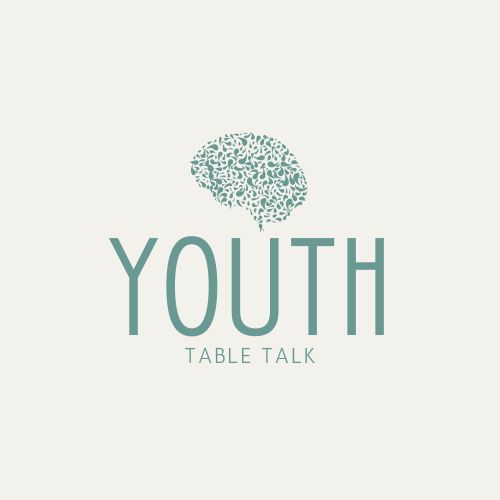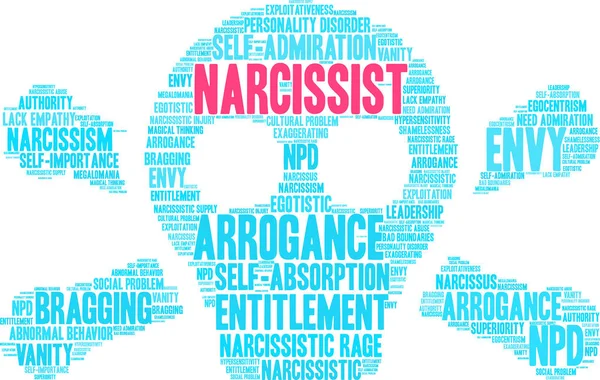The word narcissist is used to describe anyone who seems a bit self-involved.
People with narcissistic personality disorder are distracted with their own success and have a great sense of self-importance that impacts their decision-making interactions. A covert narcissism is condition in which a person shows symptoms of narcissistic personality disorder (NPD) but often hides the more obvious signs of the condition. However, it can be as destructive as overt narcissistic behaviour.
In covert narcissism, an individual finds difficulty in building or maintaining connections and relationships because of their manipulative inclinations and lack of compassion.“The covert narcissist has the broad narcissistic traits of being arrogant and self-involved while also being defensive, hostile, hypersensitive to criticism, anxious and moody or bitter. Compared to the overt narcissist, they may come across as highly sensitive, introverted, anxious, depressed, envious, and /or lacking in confidence and self-esteem.”
These are the aspects of covert narcissism
- Over-inflated sense of self-importance.
- Exaggeration of abilities, talents and achievements.
- Fantasies about being famous or influential.
- Desiring admiration and attention.
- Being occupied with vanity.
- Having a feeling of being overly unique.
- Exploitation of others to achieve goals regardless of the impact it has on others.
Causes of covert narcissism
It is likely that several factors contribute to a person being labeled as a covert narcissist. This personality disorder could be linked to the following factors.
- Childhood abuse or trauma
- Upbringing or relationship with the guardian/caregiver
- Genetics
- Personality traits
Studies have shown that people with narcissistic personality disorder are more likely to have grown up with parents who are focused on achievements and status.
Signs of covert narcissism
The following signs could indicate that a person is suffering from covert narcissism. If we see a person around us showing the following signs we should encourage them to seek professional help.
Self-importance
Covert narcissists can’t stand the idea that they might not be the smartest or the best person in the room. They want others to feel unimportant and small. They want others to know that they don’t care about their time and feelings.
One common example of self-importance in covert narcissists that we might have heard.
“You got an A in English? That’s great! Not as great as my A* last year, but still, good for you. “
Passive aggression
People with these tendencies often use passive aggressive behaviour to express frustration or make themselves look superior. The reason why they do this could be because they believe their uniqueness makes them deserving of getting what they want. Another reason could be to get back at people who have either wronged them or are more prosperous than them.
For example : Using sarcasm or humour by saying “just kidding” or by blaming someone
“It’s your fault that I forgot, because you didn’t remind me. “
Sensitivity to criticism
Narcissistic people are typically insecure and have very less or no sense of self-worth. They are highly sensitive to criticism. They might act as if they’re above criticism but internally they might feel embarrassed humiliated or enraged.
Withdrawn nature
People with this condition are deeply afraid of having their flaws or failures seen by others. They may also avoid social situations or relationships that lack benefits.
Grand fantasies
People suffering from covert narcissism spend more time thinking about their capabilities and achievements. They might also have a smug attitude.
They may withdraw into fantasy world where they imagine being recognised for their work or talent. They may imagine being admired for their attractiveness.
Depression and anxiety
Covert narcissism involves higher risk of depression and anxiety than any other types narcissism.
Fear of failure may contribute to anxiety.
Frustration over not being able to get needed appreciation and attention could lead to depression.
Feeling of emptiness and suicide are also linked with covert narcissism.
Envy
People with this disorder often envy other people who have things they feel they should have achieved including wealth, power and status.
People with covert narcissism may not discuss these feelings but express bitterness or resentment when they don’t get what they believe they deserve.
Holding grudges
When people both covert NPD believe they’re treated unfairly, they might feel furious but say nothing right at that moment. Instead they wait for an ideal opportunity to to make the other person look bad or get revenge. The revenge might be subtle or passive-aggressive. These grudges can lead to resentment and a desire for revenge.
Inadequacy
When people with covert narcissism don’t measure up to the standards they set for themselves, they may start to feel inadequate. These feelings of inadequacy could trigger feelings of shame, anger and/or powerlessness.
Commonly used phrases by covert narcissists
- It’s not a big deal.
- It’s your fault.
- Just kidding.
- Don’t get upset over nothing.
- Don’t be so sensitive.
- I was just joking.
- Why are you so defensive all the time?
- You are imagining things.
- I didn’t say that.
Dealing with covert narcissistic people
Understanding the signs of covert narcissism can make it easier to decide when it would be important to seek help or support.
Setting healthy boundaries or reinforcing them by settling realistic limitations or taking space where needed would help overcome difficulties of covert narcissism.
It’s important to avoid taking things personally or getting easily offended. Taking criticism in a healthy manner would also help overcome problems with covert narcissistic people.
Seeking help from friends and family who can offer a different perspective and can also help you recognise when you’re being manipulated.
Covert narcissists and relationships
People with covert narcissism often use several tactics to seek control over others in a relationship. These tactics include
Gaslighting
These types of narcissists use Gaslighting as a means to manipulate someone by psychological means into doubting their own sanity
For example “you have no idea what you are talking about. “
Passive-aggressive behaviour
These types of narcissists use passive aggressive behaviour by disregarding others while exaggerating their own importance.
Intimidation
These types of narcissists use this tactic to systematically break down the people around them and to maintain a show of superiority.
Reasons covert narcissist is difficult to handle for relatives
- Covert narcissists tend to play the ‘victim’ role and usually say that others don’t understand them or that they’ve tried to get along with others but others haven’t given them a chance. They may play the victim role if they believe they may gain something by making you feel guilty. It is a manipulation tactic used by these people.
- They may use triangulation as a tactic to manipulate where they try to pull a third person into the conflict specially to reinforce their own opinion or perspective. When you confront a this kind of person in your family, they may tell you they did nothing wrong and that if you were better towards them they would behave differently. They may tell you that you’re too sensitive. They may say something vile all the while having a smile on their face.
- Their behaviour may not be noticeable until someone tries to enforce a boundary. They may respond with narcissistic rage. It can be incredibly frustrating to have family members that intentionally or unintentionally ignore a covert narcissist’s harmful behaviour. They may use gaslighting tactic by trying to get you to doubt your own view or perspective. They often use this tactic by twisting facts. Another tactic used by them could be the silent treatment by purposely ignoring you or making you feel isolated.
- Even though these people have a vast social circle and a great number of friends, they cannot sustain deep personal or romantic ties due to self absorbed nature. They tend to hurt others’ feelings or cause issues within a group, but they blame others for their intentions and actions. A type of manipulation called hoovering is used by covert narcissists. In this type of manipulation they attempt to reconnect, or pull you back into a toxic or abusive relationship.
- They possess attention-seeking behaviour and always ask for more from others without contributing anything towards the relationship. This makes others uncomfortable and difficult to maintain a relationship. Parents who also use narcissistic manipulation may place all the blame on one child they designate as a
These tactics confuse others and make them question their sense of reality and also damages their self-esteem.
Summary
“Don’t defend yourself when you talk to them, because they aren’t listening and don’t really care about what you are saying,” says Durvasula.
Interacting with a narcissist is a tough line to walk for the average person as well as therapists. The covert narcissists may find the empathy or sympathy they receive insufficient. And even if we do sympathize there’s often a part of them that doesn’t believe we really mean it.
While they may lack the grandiosity and self-importance that people with overt NPD show, their behaviour can still prove to be harmful for others. If you know someone who is a covert narcissist, your relationship with them may be challenging, but there are ways to protect your mental well-being.
Do you want solutions for your social and psychological problems?
Then Subscribe to our newsletter

